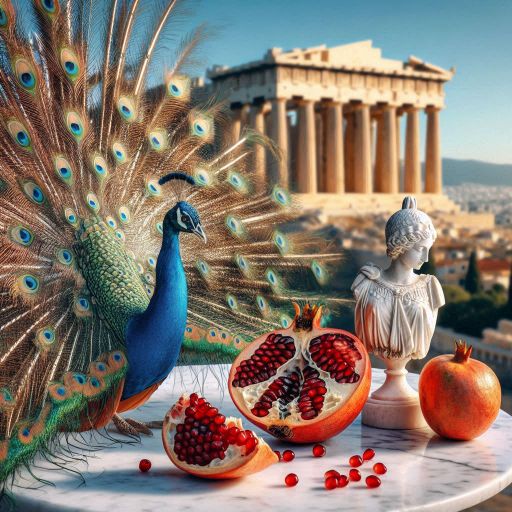Hera: Queen Of Olympus and Goddess Of Marriage
In the vast tapestry of Greek mythology, Hera stands out as a figure of immense power, complexity, and reverence. Known as the Queen of the Gods, Hera is the deity of marriage, women, childbirth, and family. Her stories and symbolism are rich and varied, offering deep insights into ancient Greek values and beliefs.

Contents
- Origins and Family
- Symbols and Attributes
- Myths and Legends
- Worship and Cult
- Hera's Legacy
- Conclusion
Origins and Family
Hera's roots lie deep in the Greek mythological tradition. She is the daughter of the Titans Cronus and Rhea, making her a sister to Zeus, Poseidon, Hades, Demeter, and Hestia. As one of the twelve Olympians, Hera's significance is profound, and her union with Zeus as both his sister and wife places her at the heart of the divine hierarchy.
The marriage of Hera and Zeus is one of the central relationships in Greek mythology, embodying both the harmony and tumult that can exist in marital bonds. Their dynamic, filled with love, jealousy, and power struggles, reflects the complex nature of human relationships projected onto the divine.
Symbols and Attributes
Hera is often depicted as a majestic, solemn figure, crowned with a diadem and holding a royal scepter or pomegranate. These symbols highlight her status and authority. The peacock, with its iridescent feathers adorned with eye-like patterns, is her sacred animal, symbolizing her watchfulness and grandeur. The cow is also sacred to her, representing her nurturing aspects.
Myths and Legends
The mythology surrounding Hera is extensive, revealing both her nurturing and vengeful sides.
Hera’s Revenge on Leto
One notable myth involves Hera's wrath towards Leto, a lover of Zeus. Hera forbade Leto from giving birth on solid ground, forcing her to find the floating island of Delos, where she eventually bore Apollo and Artemis. This myth showcases Hera's fierce jealousy and protective nature regarding her marriage.
The Trojan War
Hera played a crucial role in the events leading up to and during the Trojan War. Offended by Paris of Troy for not awarding her the golden apple in the Judgment of Paris, she sided with the Greeks and used her influence to aid them against the Trojans. This story underscores her influence in mortal affairs and her desire for retribution.

Io's Transformation
Another significant myth involves Io, a mortal priestess of Hera, whom Zeus fell in love with. To hide Io from Hera's wrath, Zeus transformed her into a cow. Hera, seeing through the deception, sent a gadfly to torment Io, driving her to wander the earth until she was eventually restored to human form. This tale highlights Hera's persistence and the lengths she would go to protect her marriage.
Worship and Cult
Hera's worship was widespread in ancient Greece, with major sanctuaries dedicated to her, such as the Heraion of Samos and the Heraion of Argos. These sites were centers of religious activity, where devotees sought Hera's favor through offerings, prayers, and sacrifices, particularly in matters related to marriage and childbirth.
The festival of Heraia, held in her honor, included athletic competitions and rituals that celebrated her role as the protector of women and marriage. These celebrations emphasized her importance in maintaining societal order and family structure.
Hera's Legacy
Hera's legacy is one of strength, complexity, and resilience. Despite her often portrayed jealousy and vengefulness, she embodies the sanctity of marriage and the protective nature of motherhood. Her stories reflect the multifaceted roles of women in society, balancing power, loyalty, and emotion.
In modern culture, Hera continues to be a symbol of feminine power and authority. She is featured in various forms of media, from literature and art to films and television, where her character is reinterpreted and explored in new ways.
Conclusion
Hera, the Queen of the Gods, remains a powerful and enigmatic figure in Greek mythology. Her tales of love, vengeance, and protection offer timeless insights into the human condition and the divine. As we continue to explore and reinterpret her myths, Hera's enduring presence reminds us of the complexities of life, love, and power, both in ancient times and today.
Interested in Greek Mythology ? Visit our blog here

